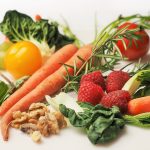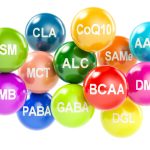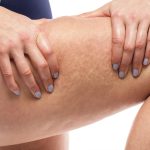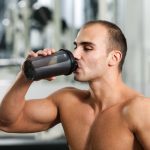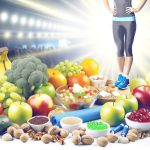Alcohol, while often a social lubricant and a component of celebration, has a significant impact on the body. When consumed, alcohol is absorbed through the stomach and small intestine into the bloodstream, where it can affect the central nervous system, liver, and other bodily functions. The liver processes alcohol, but it can only metabolize a certain amount per hour, regardless of how much you consume. Exceeding this limit can lead to intoxication, dehydration, and the potential for long-term health issues. Understanding these effects is crucial for managing consumption and mitigating negative outcomes.
What you eat before drinking can play a pivotal role in how your body handles alcohol. Consuming a meal rich in proteins, healthy fats, and complex carbohydrates can slow the absorption of alcohol into your bloodstream. This not only helps in moderating blood alcohol levels but also in reducing the likelihood of a hangover. A well-balanced pre-drinking meal can also provide sustained energy, maintain blood sugar levels, and support liver function, all of which are challenged during alcohol consumption.
The primary goals of pre-drinking nutrition are to prepare the body for alcohol intake, slow down the absorption of alcohol, and minimize its adverse effects. To achieve these goals, one should focus on:
- Hydration: Ensuring adequate water intake throughout the day and including hydrating foods in your pre-drinking meal to counteract the dehydrating effects of alcohol.
- Blood Sugar Stability: Eating complex carbohydrates to provide a steady release of energy and prevent blood sugar spikes and crashes.
- Gut Health: Including foods rich in probiotics or prebiotics to maintain a healthy gut microbiome, which can be disrupted by alcohol.
- Liver Support: Choosing foods that are known to support liver health, such as those containing antioxidants and anti-inflammatory properties.
By adhering to these nutritional strategies, individuals can enjoy social events with alcohol while taking care of their bodies and overall well-being.
Optimal Foods to Consume Before Drinking
Protein-Rich Foods for Slower Alcohol Absorption
Before indulging in alcoholic beverages, it’s wise to consume protein-rich foods to slow down the absorption of alcohol into your bloodstream. Foods like eggs, which contain about 6 grams of protein each, are an excellent choice. They not only delay stomach emptying but also help you feel satiated, reducing the likelihood of overeating later in the night. Other protein-packed options include Greek yogurt and salmon, which offer a good balance of macronutrients and essential omega-3 fatty acids that may reduce alcohol-related inflammation.
Complex Carbohydrates for Sustained Energy
Complex carbohydrates are crucial for providing sustained energy throughout your drinking session. Foods like oats are not only rich in fiber and protein but also support liver health and can protect against alcohol-induced liver damage. Complex carbs are digested at a slower rate, which can help maintain stable blood sugar levels and prevent the rapid absorption of alcohol. Opt for whole grains like quinoa or starchy vegetables such as sweet potatoes to keep your energy levels up and absorption rates down.
Healthy Fats for Reducing Inflammation
Consuming healthy fats before drinking can be beneficial in reducing the inflammatory effects of alcohol. Foods high in monounsaturated fats, like avocados, are not only heart-healthy but also slow down the absorption of alcohol, thanks to their longer digestion time. Similarly, nuts and seeds, which are high in both healthy fats and fiber, can help in moderating alcohol’s impact on the body and maintaining electrolyte balance.
Hydrating Foods to Counteract Dehydration
Alcohol is a diuretic, which means it can lead to dehydration. To counteract this effect, it’s important to consume hydrating foods before drinking. Fruits with high water content, such as watermelon, cantaloupe, and berries, not only provide hydration but also essential electrolytes like potassium. Vegetables like cucumbers and celery are also packed with water and can help maintain hydration levels. Remember, starting your night well-hydrated can make a significant difference in how you feel during and after drinking.
In summary, the optimal pre-drinking meal should include a combination of protein-rich foods, complex carbohydrates, healthy fats, and hydrating foods. This balanced approach can help slow alcohol absorption, provide sustained energy, reduce inflammation, and counteract dehydration, setting you up for a healthier and more enjoyable night out.
Specific Food Recommendations
Eggs: A Versatile Protein Source
When it comes to pre-drinking nutrition, eggs are a powerhouse. Each egg delivers approximately 6 grams of high-quality protein, which can help slow the emptying of your stomach and delay alcohol absorption. The versatility of eggs allows for a variety of preparations, from scrambled to hard-boiled, or even as part of a fiber-rich omelet with vegetables. The satiating effect of protein also helps in keeping you full, potentially curbing the appetite-enhancing effects of alcohol.
Greek Yogurt: Balancing Macros
Unsweetened Greek yogurt is another excellent choice for a pre-drinking meal. It offers a balanced mix of protein, carbohydrates, and fats, with protein playing a crucial role in slowing the absorption of alcohol into your bloodstream. For a delicious and filling snack, top Greek yogurt with fruits, nuts, and seeds, which will provide additional nutrients and help maintain satiety throughout your night out.
Oats: Nutrient-Dense and Liver-Friendly
Oats are not only a great source of fiber and protein, which contribute to fullness and can mitigate the effects of alcohol, but they also contain important minerals like magnesium and selenium. Studies suggest that oats may benefit liver health and protect against alcohol-induced liver damage. Whether in the form of oatmeal, granola bars, or incorporated into smoothies, oats are a smart addition to your pre-drinking menu.
Purium Products that contain both Magnesium and Selenium: Power Shake and Super Meal LOV
Fruits: Natural Hydration Boosters
Fruits like bananas, watermelon, and cantaloupe are high in water content and potassium, making them excellent for maintaining hydration and preventing electrolyte imbalances when drinking. These natural hydration boosters are not only refreshing but also provide a quick source of energy and essential nutrients. Enjoy them as standalone snacks or mix them into a fruit salad or smoothie for an extra hydrating treat.
Salmon: Combining Protein and Omega-3s
Salmon is renowned for its high omega-3 fatty acid content, which has been linked to numerous health benefits, including the potential to reduce alcohol-induced inflammation. Additionally, salmon is a rich source of protein, with a 3-ounce serving providing about 22 grams. This protein content can help slow down alcohol absorption. Simple preparation methods like baking or grilling, paired with a side of vegetables, can make for a nutritious and satisfying pre-drinking meal.
Vegetables and Hydration
Vegetables: High Water Content Choices
When preparing for a night out with alcohol involved, incorporating vegetables with high water content into your pre-drinking meal can be a strategic move. These vegetables not only provide essential nutrients but also contribute to hydration, which is crucial given alcohol’s dehydrating effects. Vegetables like cucumbers, celery, iceberg lettuce, and bell peppers are excellent choices as they are composed of over 90% water. Including a variety of these in a salad or as part of a veggie platter can help maintain hydration levels and slow down the absorption of alcohol into your bloodstream.
Other vegetables that are beneficial before drinking include spinach, zucchini, and radishes. These not only have high water content but are also packed with vitamins and minerals that support overall health. Consuming these vegetables can help replenish nutrients that alcohol may deplete during metabolism. For a flavorful and hydrating option, consider a spinach salad with slices of zucchini and radishes, drizzled with a light olive oil dressing.
Water: The Essential Pre-Drinking Beverage
While it’s important to eat hydrating foods, nothing can replace the role of water as the ultimate pre-drinking beverage. Water is essential for life and plays a critical role in every bodily function, including the processing of alcohol. Drinking water before alcohol consumption is a simple yet effective way to prevent dehydration, which is a key contributor to hangover symptoms. It’s recommended to drink at least one glass of water for every alcoholic drink you plan to have.
Staying hydrated doesn’t have to be boring. Infusing water with fruits like lemon, lime, or berries can enhance the flavor and encourage you to drink more. Additionally, consuming water-rich foods and beverages such as herbal teas or coconut water can also contribute to your overall fluid intake. Remember, starting your evening well-hydrated can make a significant difference in how you feel during and after drinking.
In conclusion, combining a diet rich in high water content vegetables with adequate water consumption forms a solid foundation for a healthier and more enjoyable drinking experience. By doing so, you not only support your body’s hydration status but also provide it with valuable nutrients to better handle alcohol.
Foods and Beverages to Avoid Before Drinking
Acidic and Spicy Foods: Triggering Reflux
Before indulging in alcoholic beverages, it’s wise to steer clear of acidic and spicy foods. These can irritate the stomach lining and increase the risk of heartburn or acid reflux once alcohol is consumed. Foods such as citrus fruits, tomatoes, and dishes with hot spices can exacerbate these conditions, leading to discomfort and potentially ruining your night out.
Caffeinated Drinks: Masking Alcohol’s Effects
Many people enjoy a caffeinated beverage before heading out, but caffeine can be deceptive when mixed with alcohol. It has a diuretic effect, which can lead to dehydration, and it may also mask the depressant effects of alcohol, causing individuals to underestimate their level of intoxication. This can lead to drinking more than intended, increasing the risk of alcohol-related harm. Therefore, it’s best to avoid coffee, tea, and caffeinated sodas before drinking alcohol.
Energy Drinks: A Risky Mix with Alcohol
Similarly, energy drinks are often high in caffeine and other stimulants that can hide the effects of alcohol. Mixing these drinks with alcohol can lead to a state of “wide-awake drunkenness,” where one may feel less impaired than they actually are. This combination can be dangerous and is associated with higher rates of binge drinking and alcohol-related injuries.
High-Sodium Snacks: Promoting Dehydration
Snacks that are high in sodium, such as chips, pretzels, and salted nuts, should be consumed with caution before drinking. These high-sodium snacks can lead to increased thirst and dehydration, which alcohol can exacerbate. When the body is dehydrated, the effects of a hangover can be significantly worse. Opt for lower-sodium snacks or those that can help maintain hydration levels.
In summary, to ensure a more enjoyable experience with fewer negative after-effects, it’s important to avoid foods and beverages that can trigger reflux, mask the effects of alcohol, or further dehydrate the body. By choosing your pre-drinking meals and snacks wisely, you can help mitigate some of the less pleasant effects of alcohol consumption.
Strategies for a Balanced Pre-Drinking Meal
Meal Timing and Portion Control
When planning a meal before drinking, timing is crucial. Aim to eat your pre-drinking meal about 1 to 2 hours before consuming alcohol. This allows your body to digest the food and establish a solid foundation to slow down the absorption of alcohol. Portion control is equally important; a meal that is too large can cause discomfort and bloating, while too little may not provide the necessary benefits. A balanced meal should leave you feeling satisfied but not overly full, ensuring that your body is primed to handle the alcohol more effectively.
Combining Food Groups for Optimal Benefits
To create a balanced pre-drinking meal, it’s essential to include a variety of food groups. Start with protein-rich foods like eggs, Greek yogurt, or salmon to slow alcohol absorption and maintain satiety. Incorporate complex carbohydrates such as oats or whole grains to provide sustained energy and prevent blood sugar spikes. Don’t forget to add healthy fats from sources like avocados or nuts, which can help reduce inflammation and further slow the absorption of alcohol. Lastly, include hydrating foods like fruits and vegetables with high water content to combat dehydration.
Mindful Eating to Prevent Overindulgence
Mindful eating is a practice that can help prevent overindulgence in both food and alcohol. By paying attention to the flavors, textures, and sensations of your meal, you can enjoy it more fully and recognize your body’s satiety cues. This approach encourages slower eating, which can lead to better digestion and a more measured pace when you start drinking. Being mindful of your food intake sets the stage for a more conscious approach to alcohol consumption, potentially leading to a more enjoyable and less regrettable experience.
In summary, a balanced pre-drinking meal should be timed appropriately, portion-controlled, and include a mix of macronutrients. By practicing mindful eating, you can set yourself up for a healthier and more pleasurable night out.
Conclusion: Preparing for a Healthier Night Out
Summarizing Key Takeaways
Throughout this article, we’ve explored the significant impact that pre-drinking nutrition can have on our bodies. We’ve learned that the right foods can slow alcohol absorption, maintain energy levels, reduce inflammation, and promote hydration. Protein-rich foods like eggs and Greek yogurt, complex carbohydrates such as oats and sweet potatoes, healthy fats from salmon and avocados, and hydrating foods like fruits and vegetables are all excellent choices to consume before a night of drinking.
By understanding the effects of alcohol on the body and the role of pre-drinking meals, we can make informed decisions that help mitigate the negative impacts of alcohol. The goal is not just to prevent a hangover but to protect our overall health and well-being.
Final Tips for Responsible Drinking
As we wrap up, let’s emphasize some final tips for responsible drinking:
- Hydrate: Drink plenty of water before, during, and after alcohol consumption to prevent dehydration.
- Eat well: Have a balanced meal with a mix of protein, fats, and carbohydrates before drinking.
- Choose wisely: Opt for nutrient-dense foods and avoid those that can exacerbate alcohol’s effects, like high-sodium snacks and sugary treats.
- Portion control: Avoid overeating before drinking, as this can lead to discomfort and may even increase alcohol absorption if you become too sedentary.
- Listen to your body: Pay attention to how different foods affect you and adjust your pre-drinking meals accordingly.
- Plan ahead: If you know you’ll be drinking, prepare your pre-drinking meal in advance to avoid last-minute, less nutritious choices.
- Stay safe: Always arrange for a safe way home and never drink and drive.
By incorporating these strategies into your routine, you can enjoy a healthier night out with potentially fewer negative after-effects. Remember, moderation is key, and the best way to prevent a hangover is to drink responsibly. Cheers to a fun, memorable, and healthier night out!



